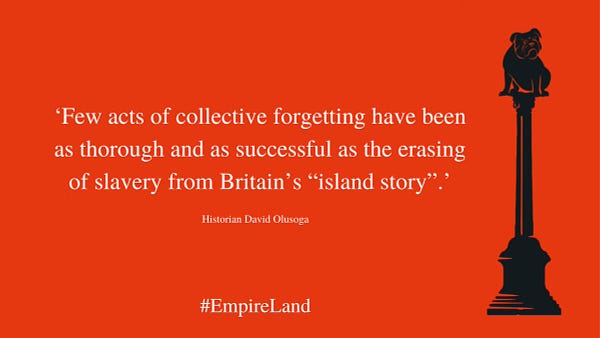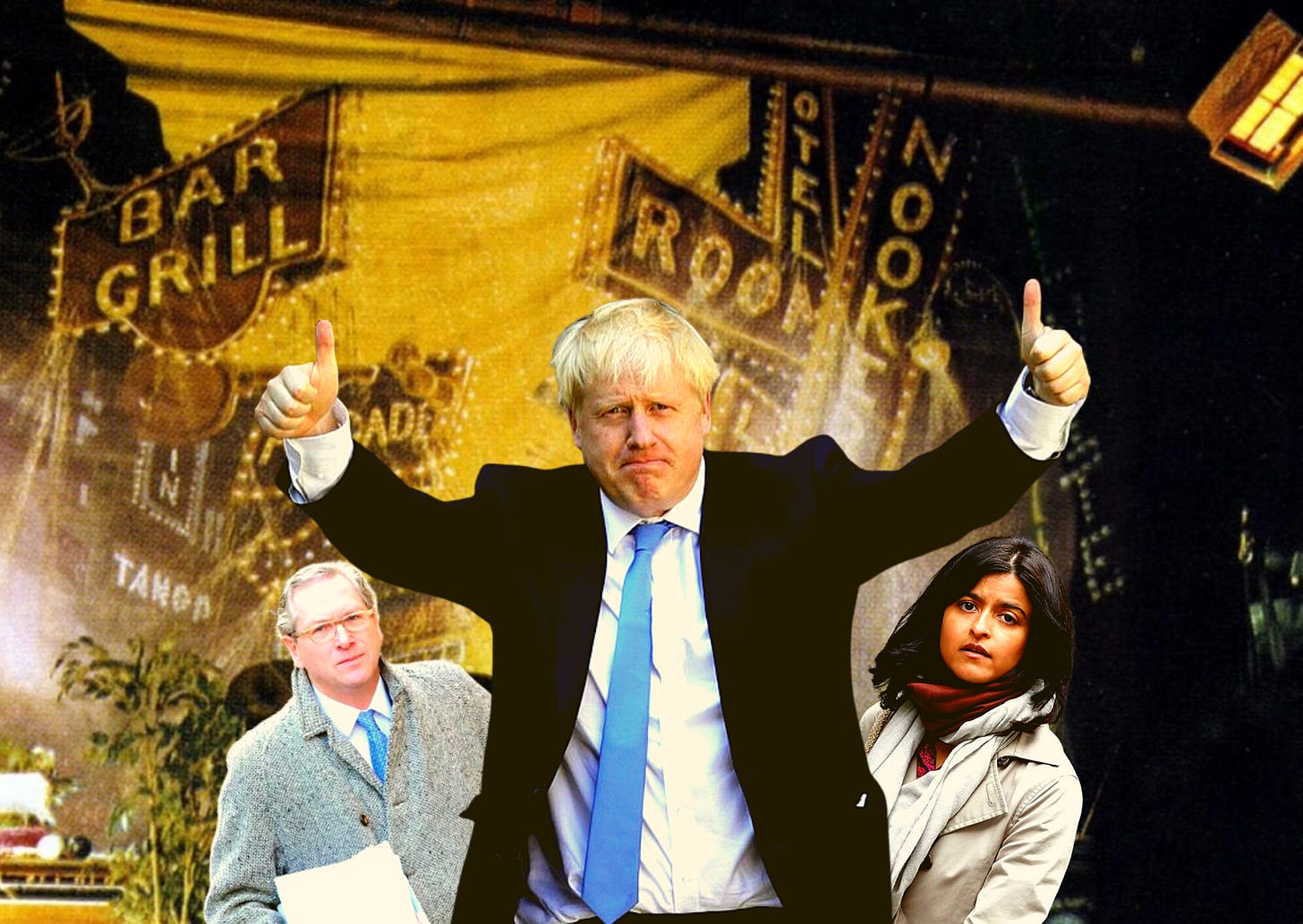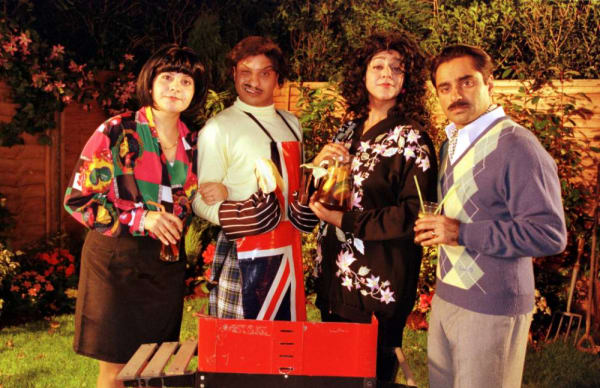A (Bad) Sign of The Times: Picking apart one newspaper's response to *that* report on racism
But really I could have chosen any part of the right-wing press today.
Yesterday’s front pages from papers including The Times, The Daily Telegraph and The Daily Mail splashed on the ‘landmark review’ into race relations on the basis of a short preview of the Commission on Race and Ethnic Disparities’ report. Now the full thing is out and available for anyone to read, it turns out the Cliff Notes version cut out a lot of the most egregious content, like a version of Bambi that skips over all that ‘unpleasantness’ with his mother.
The government wanted to secure positive headlines about the report so it gave out toplines and sneaky briefings before tossing the full document out when the terms of the debate had already been set.
One bit of evidence that the Conservatives were up to their usual cack-handed news management tricks was the fact that it avoided offering Nadine White, The Independent’s race correspondent, and other black and ethnic minority journalists briefings while ensuring the usual suspects were suitably primed with overheated lines.
The Government Equalities Office told White: “I’m afraid the commission specified a tight list of journos to be given the trail…” How curious. I’m sure it had nothing to do with a previous attack on White by Equalities Minister, Kemi Badenoch, for the horrific crime of… doing her job.

The Times, after running with the headline Diverse UK hailed over narrowing of race gap yesterday, over a report that contained no quotes from critics of the Commission, acknowledges them today — Anger over slave claims in landmark race review. But look at the construction of that headline — it avoids saying who the anger is coming from and parrots (again) the government’s framing of the report as “a landmark review”.
The news story quotes the TUC, the GMB, the Labour Party, Lord Woolley of Woodford, a crossbench peer who founded Operation Black Vote and formerly chaired the government race disparity unit’s advisory group, and the Runnymede Trust criticising the report.
It also includes quotes from the Commission’s chair Tony Sewell, the chair of the Equality and Human Rights Commission, Baroness Falkner of Margravine, and a Duwayne Brooks, a “former councillor and friend of Stephen Lawrence” defending its conclusions.
But Brooks’ inclusion is interesting for the single word that Simon Murphy, The Times’ Social Affairs Editor and Eleni Courea, a Political Reporter at the paper, omit from their description of him:
Duwayne Brooks, a former councillor and friend of Stephen Lawrence, who was the victim of a racially motivated murder in 1993, told Times Radio: “The report makes it clear racism exists — that’s a fact in this country.”
Brooks is a former Conservative councillor, but The Times curiously decides to omit that from the piece. Odd really as a piece by Brooks for The Times’ Redbox political blog just yesterday on the same topic was able to correctly identify him as “a Conservative Party activist and campaigner for racial equality”.




And while The Times’ new story manages to contain at least a semblance of balance, the rest of the paper makes it abundantly clear that the corporate view is in favour of the Commission and the report. In the comment section, Mercy Muroki writes under the headline The race lobby is peddling lazy generalisations, an ouroboros-like construction that manages to do itself exactly what it is accusing the ‘race lobby’ of doing.
Muroki, who was on the Commission, says:
Our review, published yesterday, is the first official attempt to delve into the complexity of ethnic disparities and, importantly, to try to understand the causes, something previous reviews have not focused on.
That will come as a surprise to David Lammy, who published a government-commissioned review in racial disparities in the justice system in 2017, and the contributors to the Racial Disparity Audit that was published in the same year.
As Gal-dem’s Moya Lothian-McLean notes, Muroki — who is just 25 and still studying for her masters at Oxford — has got a significant amount of media time and would have been unlikely to have been placed on the Commission if she had not already expressed views in line with the government’s (and particularly those put forward by the head of the Number 10 policy unit, Munira Mirza).
Continuing the vibe of her piece’s headline, Muroki writes…
The race lobby will attack a straw man and resort to ad hominem insults because they’re not willing to engage with evidence they do not like.
… resorting to a straw man attack (“the race lobby”) and making personal attacks elsewhere in the article:
Indeed, Shola Mos-Shogbamimu, a leading voice in that race lobby, has denounced our chairman, Tony Sewell, as a “token black man” who is spreading a “white supremacist lie”. This is a man who has dedicated his life to helping disadvantaged ethnic minorities fulfil their potential. You decide which one is truly committed to tackling ethnic disparities.
That’s Dr Shola Mos-Shogbamimu, by the way.
The Times support for the review continues in its leader column which is dismissive of the criticism (“Despite the backlash…”) and waves away complaints about the clearly ideologically-loaded composition of the Commission:
It has long been difficult to have a frank and fair conversation about the realities of racial discrimination in modern Britain. The backlash to the release of the landmark review by Boris Johnson’s Commission on Race and Ethnic Disparities yesterday proves that the period of protest and self-examination that followed the killing of George Floyd last summer has made it no easier.
Even before publication, it was dismissed in some quarters as an attempt to deny or belittle the existence of racism in this country. While not without fault, it does nothing of the sort. It is a serious attempt to move the national conversation beyond polarisation and towards practical solutions.
Look again at the phrasing — “Even before publication, it was dismissed in some quarters…” — in The Times’ view, those critics aren’t worthy of naming or engaging. It is not going to address the report’s biases or even try to unpick the ahistorical and offensive suggestions in Sewell’s foreword that:
There is a new story about the Caribbean experience which speaks to the slave period not only being about profit and suffering but how culturally African people transformed themselves into a re-modelled African/Britain.
Lord Woolley, the director of Operation Black Vote, who has just been announced as the first black man to lead an Oxbridge college, demolished that line of argument succinctly:
The only good narrative about the enslavement of Africans is that we survived. This propensity from the architects, the authors of this report, to change the narrative is becoming gut-wrenching… there is a trajectory that seeks to have a culture war when the tens of thousands of people wanted to protest against the statues of slave owners who have been revered.


The Times is still seen by some as “the paper of record”, but it’s more The Sun in more expensive shoes and with less of a tendency to put on what it imagines is a ‘working class’ accent. It exists to support, defend, and further the status quo to such an extent that Rocking All Over The World should be played in its newsroom at all times.
It’s no surprise that a paper that regularly prints columns by Melanie Phillips — who was quoted favourably several times in Anders Behring Breivik’s manifesto — and thinks nothing of printing Clare Foges’ persistent attacks on Gypsy, Roma and Traveller communities should find the Commission’s report compelling.
Day in day out, The Times acts as a megaphone for a political and media culture that tells you to ignore what your eyes and ears tell you in favour of an established line. While it still affects to ‘speak truth to power’ in investigations on its news pages, the underlying story it tells is one of Britain being ‘great’, our leaders basically being fine, and our complaints being ‘snowflake wokery’ from people who just didn’t pull hard enough on their bootstraps.


As Nadine White writes, the report was “months overdue… 258 pages long” and “feature some staggering assertions – and a lot of glaring omissions”. If The Times was inclined to read the document as carefully as White has, it would struggle to excuse the cherry-picked data, gaslighting tone, and clear evidence that the conclusion was written before the work was even begun.
But that doesn’t fit with its worldview so instead we get a leader column that concludes that “nobody approaching the commission’s report in good faith could disagree.” Did none of The Times leader writers read their own colleague Sathnam Sanghera’s recent book Empireland?


Liz Gerard did some sums for her Press Gazette analysis of bigotry in the British media and worked that of 130 columnists with a fixed slot in the national comment sections all but nine are white.
Qwhite hard to work out why the newspapers would be so keen to accept claims that institutionalised racism isn’t a thing, isn’t it?









